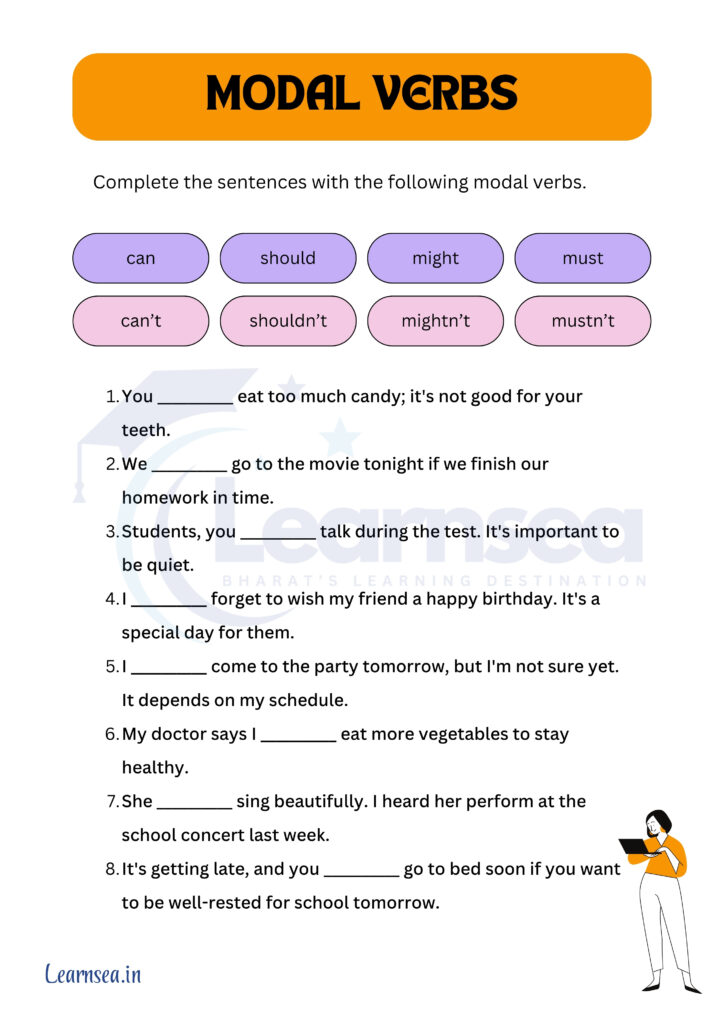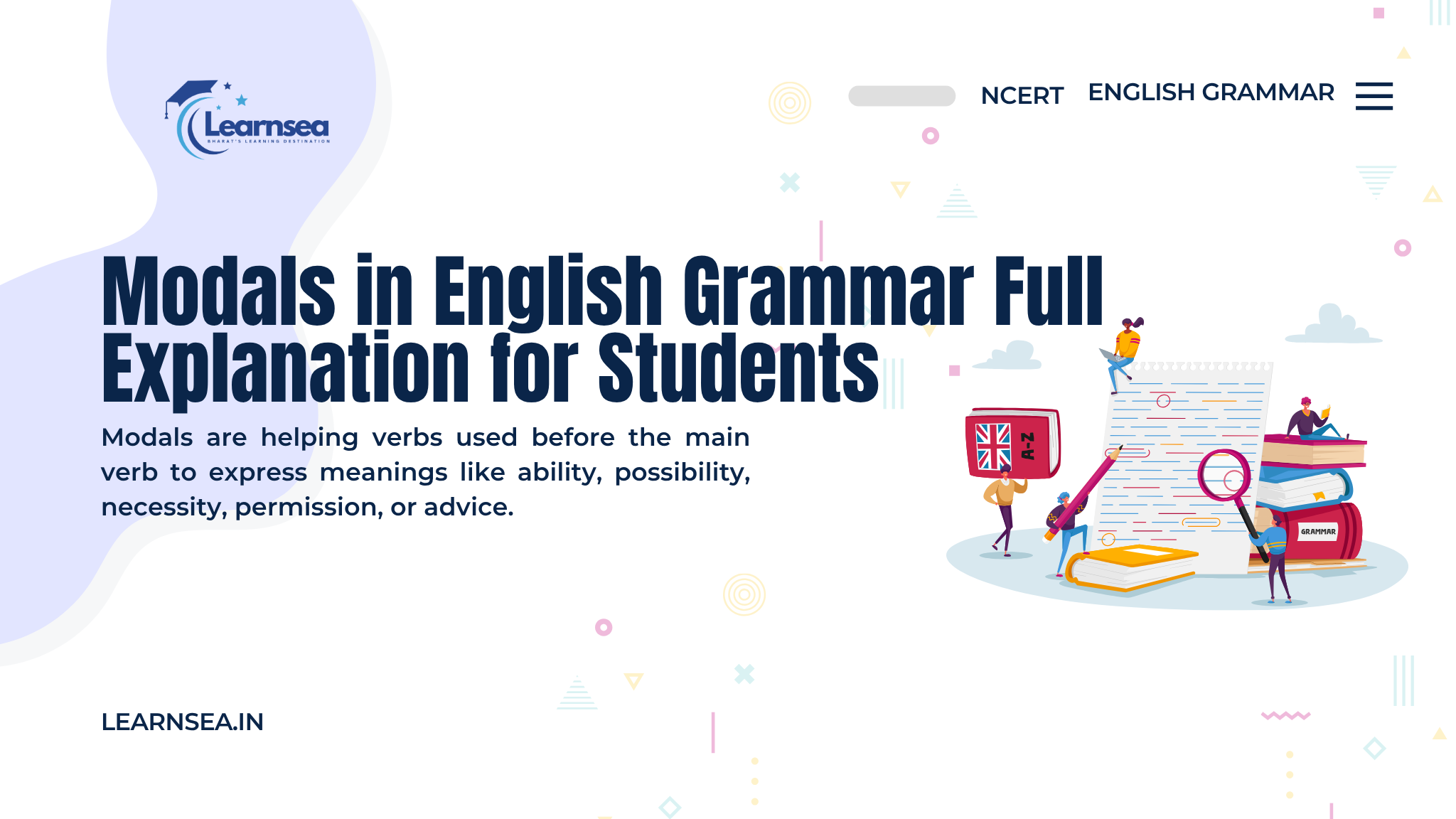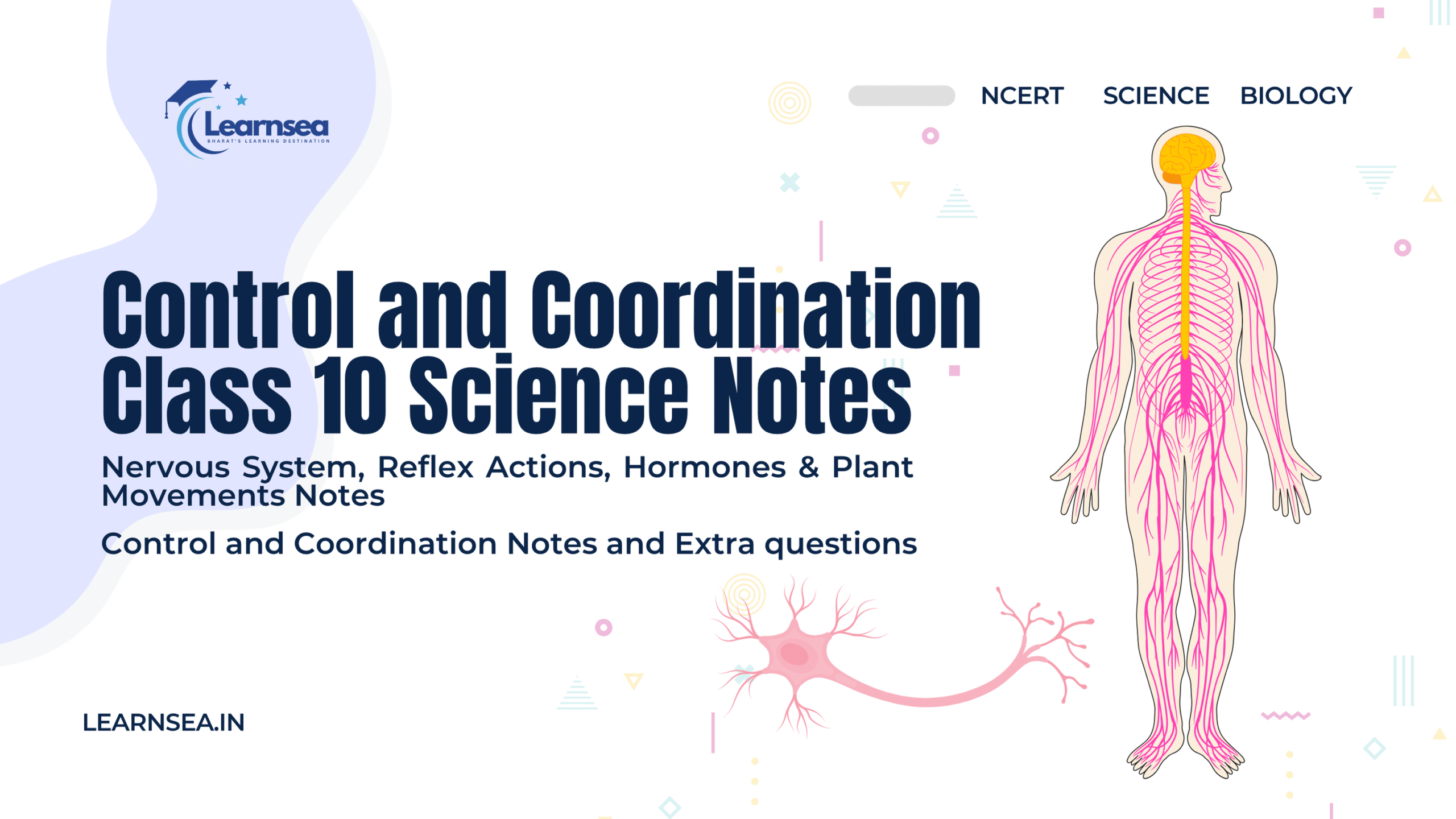Modals auxiliary verbs are needed in sentence formation to express our views such as desire, necessity, ability, certainty, possibility, etc. The student must learn the correct use of Modals in English grammar. The modals are beneficial in speaking English. One can download the Modal worksheet from the link provided below.
Rules for using modals verb in English Grammar
The student must keep in mind that modals are auxiliary verbs (helping verbs) or helping verbs. The helping verbs like can, could, will, would, etc.
The student must remember that Need, Dare, and ‘ought to’ are modal verbs. These words are also used as main verbs in most of the cases.
- You can visit me, whenever you can.
- I can call Ranvir Singh.
- She can not travel to Mumbai.
- They can start cooking.
The main verb that follows modals is always used in its base form.
Always remember while using modals, one must follow them with either the V3 form or the -ing form of the verb.
- We should have ordered pizza
- You must be meditating every morning
Learn All 12 Modal Verbs with Easy Examples English Grammar PDF
CAN
Can is used to show ability, strength, nature, probability, and permission. cannot is the negative of the can that is used to express incompetence, inefficiency, and inability of an action.
- I can crack the JEE examination
- She can talk very fluently in English
- Can you please tell me a fictional story
- You can submit a leave application\
- Can I close the window?
COULD
Could is used to express permission, freedom, determination, capacity, polite request, mild annoyance, formal request, and even probability.
Could you help me complete this assignment
- He could have done it well.
- She could make you a delicious meal.
- Could you please turn off the fan?
MAY
May is used in formal sentences to express probability, desire, to seek formal permission, aim, objective, or lack of possibility.
- She may be shy
- May all family live well
- You may ask Mr. Gupta to complete this project.
- May I ask you a question?
MIGHT
Might is the past form of May and it is used to express possibility, purpose, future possibility, etc.
- She might visit London.
- You might solve this question in the upcoming examination
- She might have finished her homework.
- She might come on Sunday.
SHALL
Shall is used in the simple future tense to express future actions. It is used with “I” and “we.” shall express a person’s desire, promise, intention, planning, and proposal.
- I shall travel to Los Angeles.
- Shall we play video games?
- Shall you complete my science project file?
- I shall call her on Thursday.
SHOULD
Should is the past form of shall and should be used to express advice, moral obligation, ethical suggestion, imagination, desire, guess, and duty.
- We should always follow our parent’s advice
- We should always walk on the footpath
- We should respect our teachers.
- You should work smart to solve this puzzle.
WILL
Will is used in simple future tense. Will is used to express any action that is going to take place in the future. Will (helping verb) I use to show routine, formal request, warning, determination, suggestion, desire, order, and instructions.
- I would like to call Harry for a speech on Mother’s Day.
- I would like to learn karate for the upcoming national championship
- Virat Kohli would hit another century in the next cricket match.
- I would help her to overcome her fear.
OUGHT TO
Ought to be used in moral obligation, ethical advice, fundamental duty, moral advice
- We ought to love our parents.
- We ought to follow the school’s decorum.
NEED TO
The need is used in English conversation to express necessity. As the main verb Need is followed by to+verb.
- He needs to work hard to buy an iPhone.
- You need to think twice before inventing
- You need to pay the debt as soon as possible.
- It needs to be done on time.
USED TO
Used express habit/continuous action in the past. The past habit that no longer happens
- He used to burn the midnight oil.
- She used to take care of her family when her mother was sick
- I used to ride my bike when I was young
MUST
Must is used to express moral and ethical obligations, advice, compulsion, formal advice, guess about past activity, and to demonstrate any conclusion.
- I must join a gym to keep myself fit
- You must follow the required guidelines to join this online class
- She must be telling a different story
- The servant must follow her master
DARE
Dare is used to express courage to do something. The dare is sometimes used negatively.
- How dare you touch my car?
- Don’t dare to do this again.
- Don’t dare to speak in my class.
- How dare you lie to me?
Free Modal Verbs Practice Worksheet with PDF for CBSE and ICSE





